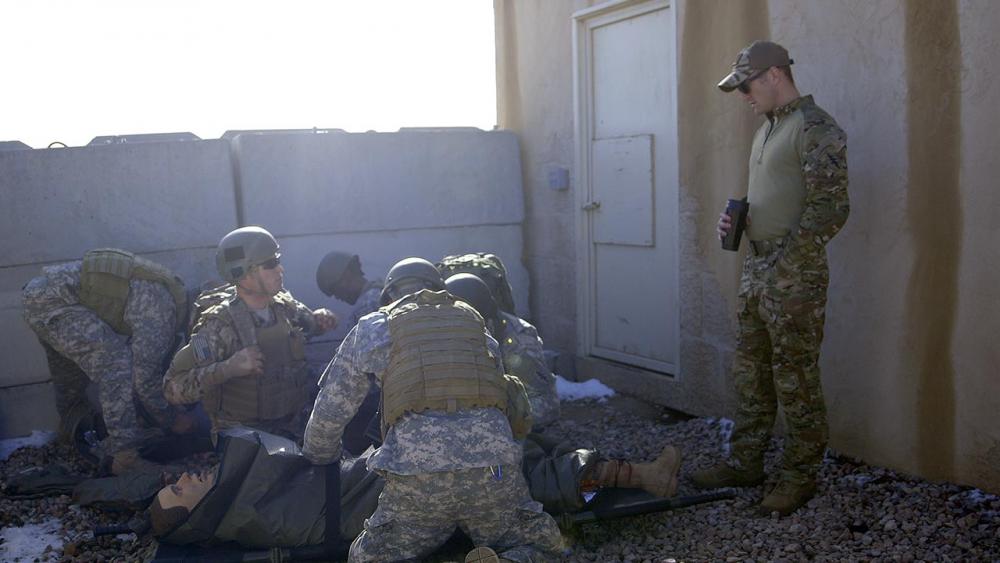
WINEGARNER: All right, guys, thanks for coming out this morning. So we're here today to do some good TC3 training. Nick, you're our medic today, and so you're going to be kind of taking point, and he's going to be the boss. I'm going to be in the background; I'll be helping direct what's going on.
All right, Nick, take it from here.
NICK: And you'll be point man on the patrol. You'll be on the right side of the wedge, along with you. When we take casualties, I'll assign roles when we get there.
WINEGARNER: All right, guys, you've got superior firepower.
NICK: Left side, move to the vehicle. Right side, move to us. Get on the front side of the vehicle.
MALE: Hey, we need a hand over here.
WINEGARNER: At this stage, which we would call care under fire, is managing massive hemorrhages.
NICK: You get the bleeding stopped?
MALE: Bleeding's stopped.
MALE 1: Bleeding's stopped.
WINEGARNER: So we're moving from...
NICK: You with me? OK.
WINEGARNER: What we would have considered care under fire out there, where all they really did was stop the bleeding and get him somewhere more secure, to what we would call tactical field care here. So this is where our medic's going to take charge; he's going to start addressing every problem that he can find. Nick, what's something that you might have to worry about on this guy with a chest wound, now you've occluded his chest wound?
NICK: Might have to needle d him.
WINEGARNER: OK.
NICK: We're going to check for bilateral rise. He was good; his respirations weren't too high either. [booming noise]
MALE: We gotta get going.
WINEGARNER: All right, guys, it's not safe anymore. Let's get going. [sounds of gunfire] Move out, move out. So this is simulating — we would, you know, probably have to move him to somewhere safe for a helicopter to land, and then from here we're going to take the patient to a higher level of care. You know, now we're more in a field-hospital setting.
Redirecting your request...
Topic Categories
-
Military Medicine 101
-
Applying + What to Expect
-
Education + Training
-
Careers + Lifestyle